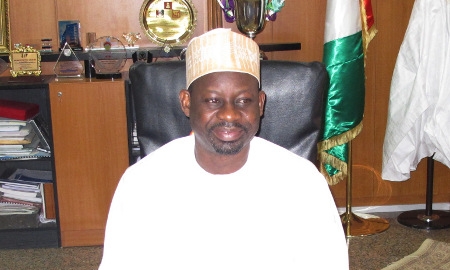The 2.4 million-strong northeastern state of Gombe describes itself as a “forward looking state with significant economic resources and mineral resources potentials.” Indeed, it is rich in human talent – which it is propelling forward through strategic investments in education – as well as abundant arable land. Agriculture, in fact, employs more than three-quarters of the state’s working population.
Elected governor in a landslide victory in 2011, Ibrahim Hassan Dankwambo left his post as accountant-general in the federal government, where he had served successfully for six years. As governor, he is implementing an agenda of education and infrastructure development, thus creating a solid basis for growth in all other sectors.
How would you like to see the federal government’s revenue streams diversified, and in particular what steps are you taking in Gombe?
In order to encourage people to pay more revenue in the form of taxes or of contributions to growth, we must be able to provide services like education, water and healthcare, and promote sectors like agriculture. These are the issues we are addressing in Gombe.
When the necessary infrastructure – like rural roads and access to water – is put in place, there will be a rise in agricultural production, thereby increasing the revenues of the farmers and the state. If we develop infrastructure, the cost of doing business will be reduced.
But businesses also require technological advancements as well as investment in education to have a workforce that is prepared and affordable. We are investing a lot in education to ensure that our products are competitive. When we succeed the levels of income will go up and gradually the ability to pay taxes will too.
We have potential in the area of mining of solid minerals; we are one of the leading cement producers, and we also have mineral resources like limestone and gypsum. Without the development of infrastructure, education and an improvement of health services, the cost of exploiting our resources and the cost of business will be very high and we won’t attract investment.
We are investing in bringing down the costs of doing business, and in increasing access to our products to the people living outside the cities. We are also enhancing security to guarantee the safety of our citizens of Gombe and of any investor that wants to come to Gombe.
“We are investing in bringing down the costs of doing business”
Ibrahim Hassan Dankwambo Governor of Gombe State |
How has the violence in northern Nigeria affected foreign investment in your state?
Due to the security issues that affect our neighbouring states we have experienced a set back. There is the perception that all states in the northeast are affected by violence, even though Gombe is safe.
What, then, are the sectors that would prove most attractive to UK investors?
We’re looking at establishing partnerships to develop some of our solid minerals, like limestone and gypsum. Gombe has one of the finest coal deposits in the country. There’s a cheap and available source of energy. The minerals here are very close to the surface so the cost of extraction is very cheap.
I always say that the state of Massachusetts in the US doesn’t have agriculture and much industry, but they do have education, and that is why we are developing education so Gombe can be an educational hub of talent development. We want to export talent from Gombe, and there is much potential in this sector. Gombe offers many opportunities and our experienced team is ready to establish partnerships with any investor; we want to convince investors to come here and to see for themselves our commitment as a government and as a people.
Gombe is a predominantly agricultural state. Our approach to the agricultural sector is to encourage farmers to increase their production. Our yield per hectare has gone up by 50 per cent compared with last year, yet it is still lower compared with the yield of other states. We’ve implemented incentives and farmer support programmes, supplying them with fertilisers, training programmes and making arrangements with NGOs, especially with Sasakawa – a Japanese programme that teaches farmers how to increase production.
Our objective is that all agricultural products find their way to the market and not to the hands of middlemen. We’re developing a trading platform that will eventually become a commodities market for every person with a product to sell. It will be centralised and regulated by law. This is an ongoing process and we’re looking for investors to develop this market.
What is your administration currently doing to increase the quality of education in Gombe?
When we came to office the educational system was a little backward, so we brought together a group of experts in education to develop a programme for revitalising the education systems in Gombe. A report was submitted and with the information in the report we developed a road map for the implementation of programmes and actions.
The key factor for the success of the programme is that it reflects where the people of Gombe want to go and how they want to develop the education of the state, and that is why the programme is being very successful.
There are more classrooms and we are increasing the teacher-student ratio, providing more textbooks, encouraging girls to attend school and offering literacy programmes for older people. Within a year we have experienced many successes, and the percentage of students attending secondary education has increased.

0 COMMENTS